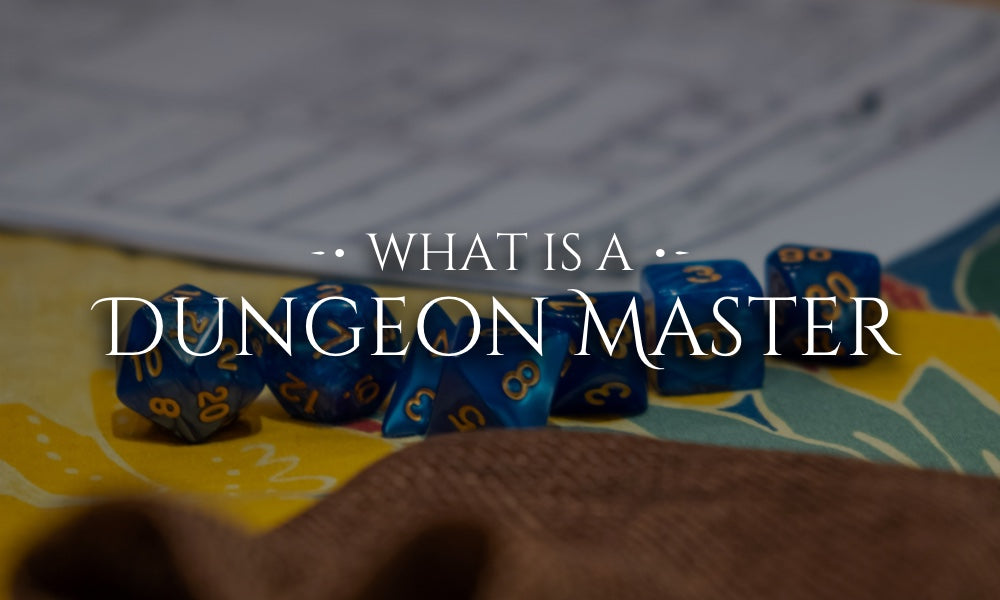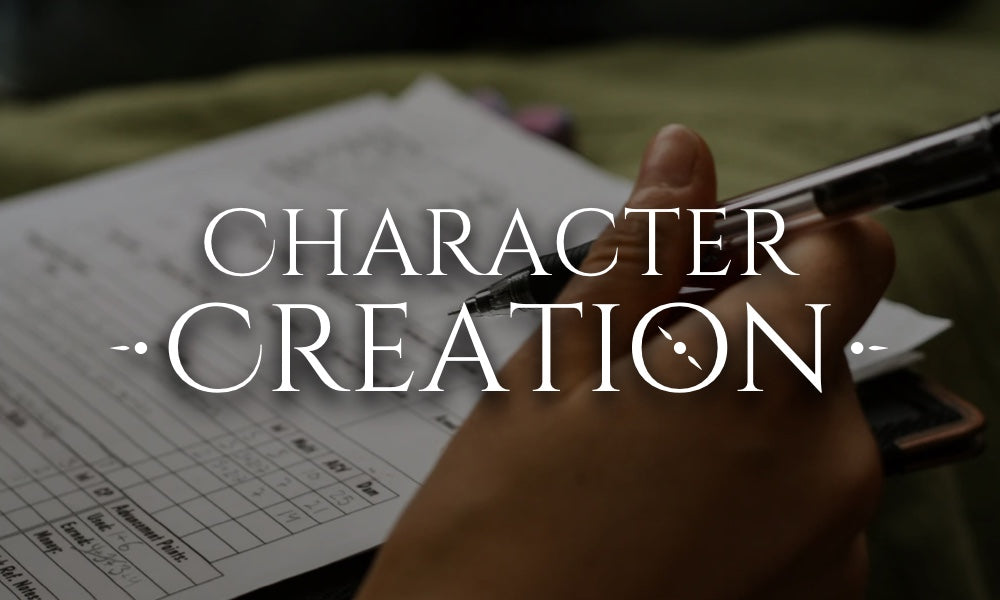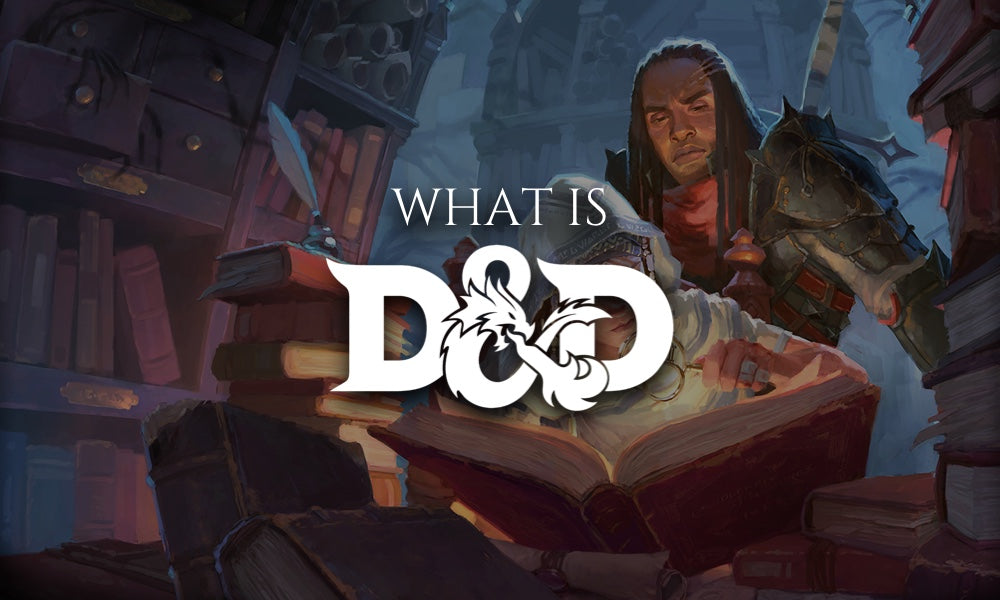
What is a Dungeon Master (DM)?
So you're new to tabletop role-playing games (RPGs) and you've probably heard the terms "Game Master" or "Dungeon Master" (specially for Dungeons & Dragons (D&D) but often used interchangeably) thrown around a lot. But what does it really mean? Allow us to break it down for you in this blog post.
In most tabletop RPGs, the DM is kind of like the conductor of an epic orchestra. They create the world and all its inhabitants, as well as the challenges and adventures that the players will embark on. The DM sets the stage and guides the players through the game, describing the action and helping them make decisions as they control their characters.
But the DM isn't just a narrator - they're also the ultimate authority when it comes to game rules and any disputes that may arise. They have the power to make decisions on how the mechanics work and how the story unfolds. It's a big job, but someone's gotta do it!
Let's dive into an example of an exchange between a DM and a player.
An Exchange:
Player: "I want to search the room for any hidden doors or traps."
DM: "Alright, roll a Perception check to see if you spot anything out of the ordinary."
Player: rolls a dice and gets a result "I got a 14."
DM: "As you search the room, you notice a faint glimmer coming from behind a tapestry on the far wall. It looks like it could be a hidden door."
Player: "I want to investigate further and see what's behind the tapestry."
DM: "You carefully move the tapestry aside and discover a small door hidden behind it. It's locked, but do you see a keyhole."
Player: "I want to try picking the lock. I have thieves' tools and a proficiency in lockpicking."
DM: "Okay, roll a Dexterity check with your thieves' tools to see if you're able to successfully pick the lock."
Player: rolls a dice and gets a result "I got a 15."
DM: "You manage to pick the lock with ease and the door swings open. Behind it, you see a spiral staircase leading downwards. It looks like it might lead to some sort of underground chamber."
Player: "Alright, let's check it out."
DM: "You carefully make your way down the staircase, being mindful of any traps that might be waiting for you. As you reach the bottom, you find yourself in a damp and musty chamber. It looks like it hasn't been used in a long time. There are a few old chests and crates scattered about, as well as a large stone pedestal in the center of the room."
Player: "I want to check out the pedestal."
DM: "As you approach the pedestal, you see a glowing crystal resting on top of it. It seems to be emanating a faint aura of magic."
Player: "I want to touch the crystal."
DM: "You reach out and touch the crystal, and suddenly you feel a surge of magical energy coursing through your body. You're not sure what it does, but you have a feeling that it might come in handy later."
Player: "I'm going to take the crystal with me. Let's search the rest of the chamber before we go."
DM: "You spend the next few minutes searching the rest of the chamber, but you don't find anything else of interest. As you make your way back up the winding staircase, you can't shake the feeling that the crystal is important and wanted to be found."
One of the main goals of a DM is to provide a super fun and balanced gameplay experience for everyone at the table. This takes a healthy dose of creativity and flexibility, as the DM has to constantly adjust to the players' actions and decisions. They also need to be able to think on their feet and come up with creative solutions to keep the game moving forward.
But here's the thing - the DM is a player too! They control any non-player characters (NPCs) that the players interact with, as well as any monsters or enemies they might come across. The DM can even have their own character in the game if they want, although it's not a requirement.
Being a DM can be tough work, but it's also super rewarding. It takes a lot of preparation and organisation, as the DM has to be ready for anything at any given moment. It also requires a wild imagination and the ability to think on the spot. But if you're someone who loves world-building and storytelling, the DM role is the ultimate creative outlet.
In a nutshell, a Dungeon Master is the person who runs the show in a tabletop RPG. They're the storyteller, referee, and all-around facilitator, making sure everyone has a totally epic time. Whether you're a newbie or a pro, understanding the role of the DM is key to enjoying and participating in these types of games.


